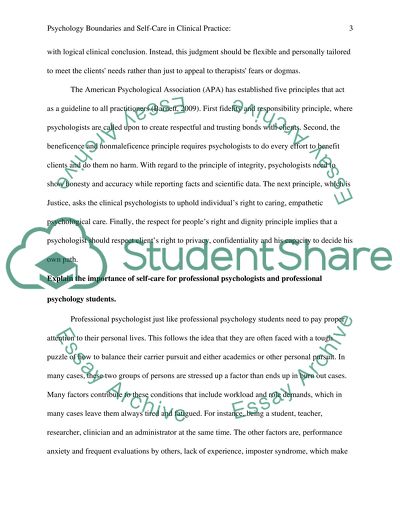Cite this document
(“Boundaries and Self-Care in Clinical Practice Term Paper”, n.d.)
Boundaries and Self-Care in Clinical Practice Term Paper. Retrieved from https://studentshare.org/psychology/1454675-boundaries-and-self-care-in-clinical-practice
Boundaries and Self-Care in Clinical Practice Term Paper. Retrieved from https://studentshare.org/psychology/1454675-boundaries-and-self-care-in-clinical-practice
(Boundaries and Self-Care in Clinical Practice Term Paper)
Boundaries and Self-Care in Clinical Practice Term Paper. https://studentshare.org/psychology/1454675-boundaries-and-self-care-in-clinical-practice.
Boundaries and Self-Care in Clinical Practice Term Paper. https://studentshare.org/psychology/1454675-boundaries-and-self-care-in-clinical-practice.
“Boundaries and Self-Care in Clinical Practice Term Paper”, n.d. https://studentshare.org/psychology/1454675-boundaries-and-self-care-in-clinical-practice.


